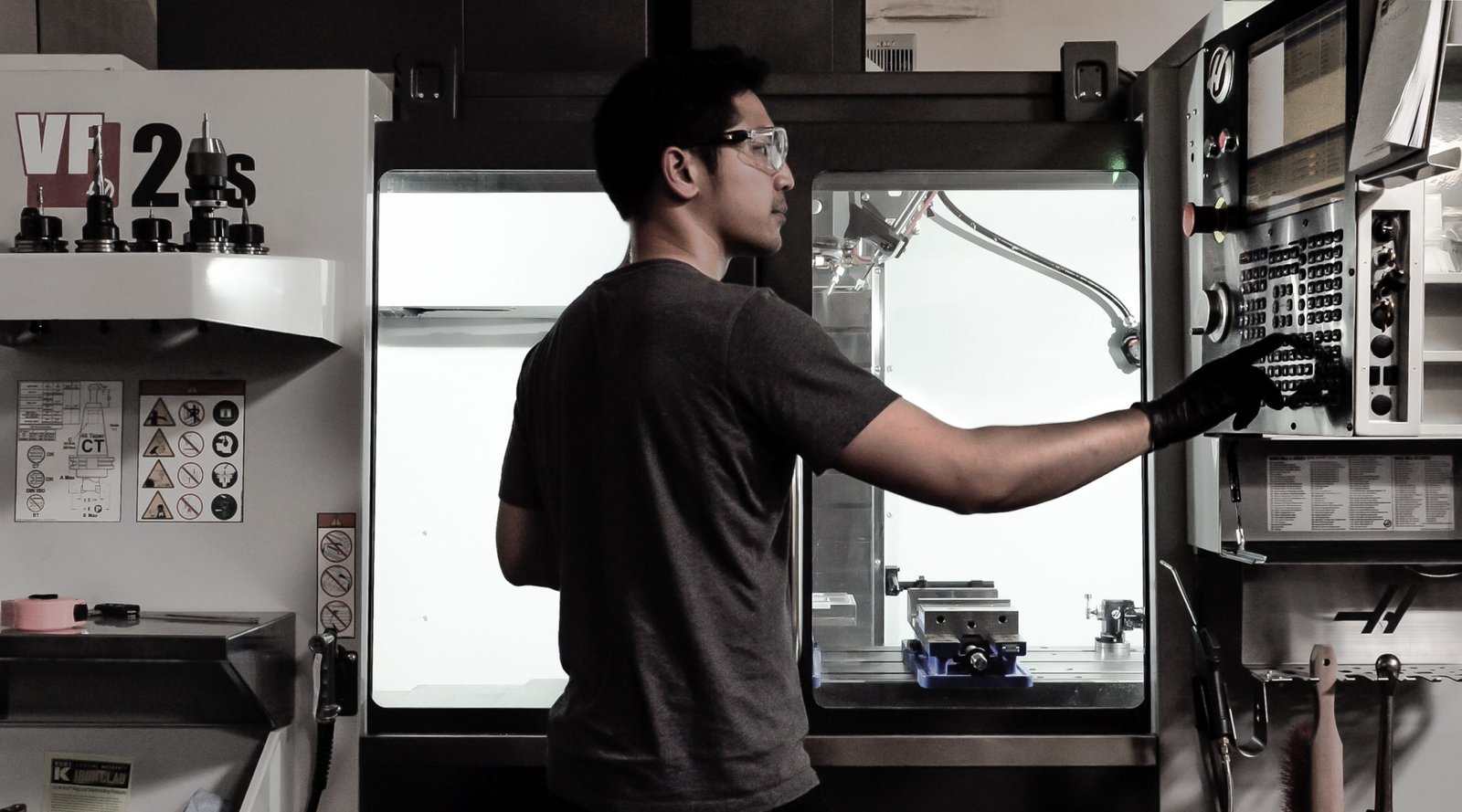Daniel has always been creative and now has taken that to new heights after overcoming many obstacles.
Born in the San Francisco Bay Area, and raised in Vallejo, California, Daniel has always been a creative kid. He would make sculptures out of aluminum foil, aircraft models from wood, make origami animals, and built functional miniature crossbows out of popsicle sticks, which would shoot toothpicks across the dinner table. Being in a lower-middle-class family, with nobody else to do arts and crafts with, being the creative type was definitely a lonely experience for him.
As he got older and found himself practicing acrobatics religiously, his dream was always to be in Cirque Du Soleil and perform, but the future had other plans. At age 19 when training alone, Daniel ended up falling directly onto his head and breaking his neck due to a fault in the gymnastics safety equipment. His arms went numb, and couldn’t feel his upper spine. It was almost as if his neck had been stabbed with an ice-cold knife, right through the bone. The doctors took an X-ray, CAT scan, and MRI scan of the injury, and saw that he actually had broken two bones in his cervical spine, and only had 5 millimeters of clearance between the bones and spinal cord—putting him in a life-threatening condition. It was either be paralyzed or die if they weren’t careful with him. In fact, the only reason his head stayed on was because his outer neck muscles held everything in place.
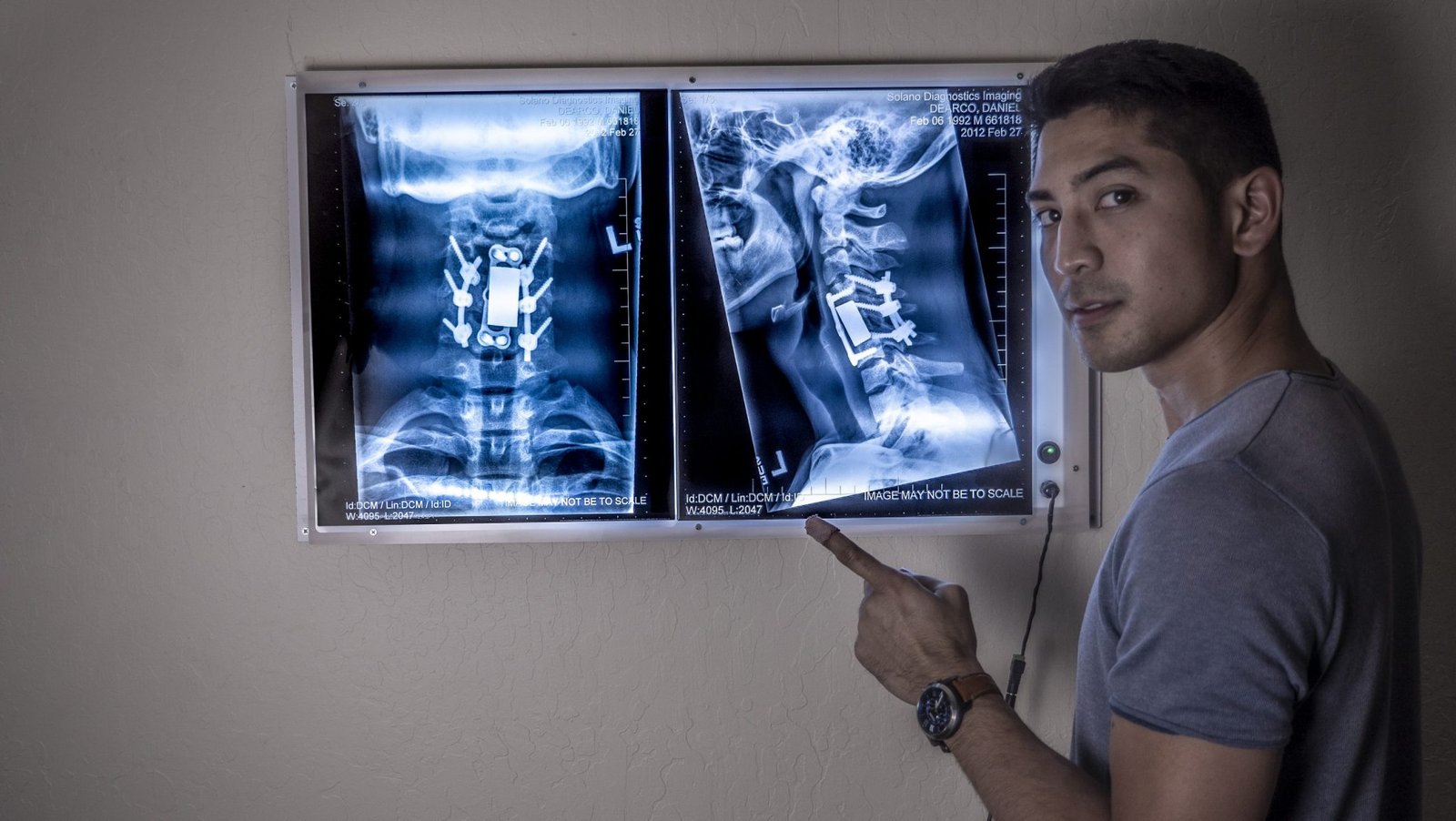
About half a week later, the neurosurgeons proceeded with the operation, installing titanium screws and tantalum plates on top of a fake bone graft. Despite the humiliating 4-6” scars on his neck, he thought it was cool that it felt like a robotics experiment.
“What kind of metal is inside my spine? How was it made? With what kind of machinery? Will I beep if I go through a metal detector? (Spoiler: I didn’t beep).”
Daniel’s curiosity had him seeing the world differently, and reinvigorated his obsession with creating things. As he was being prepared for his leave from the hospital, the doctors told Daniel that it was his duty to move mountains when he got back home. After going back to college, Daniel immediately dropped out and picked up a camera to document things that were important to him. This led to a career in photography and filmmaking, moving to Los Angeles in 2015, and sharing with clients the creative propensities that he had when he was 8 years old.
In LA he experimented a lot with the photography career, shooting everything from fashion to product launches, to commercial ad campaigns, to e-commerce, to events… and although the life of professional photography was nice, there was only one thing that felt connected to his heart. Whenever he felt lost, he reflected back on those moments where his face lit up in the hospital—while staring at the X-rays and hearing about how this technology helps hundreds of thousands of people around the world. It’s incredible how advanced we are as a species.
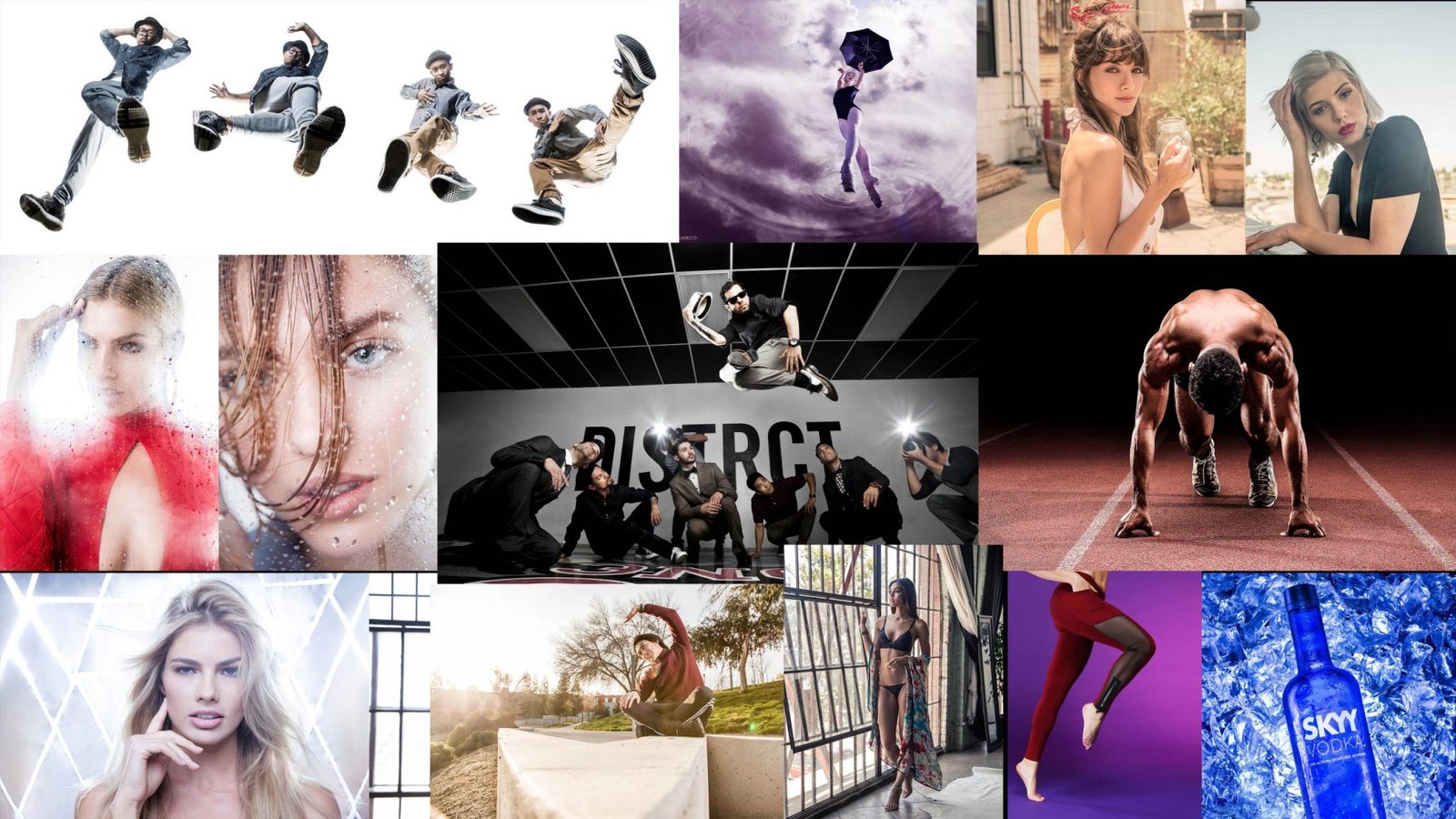
Daniel’s specialty now is industrial storytelling, and he takes great pleasure in telling the stories of companies/people that are innovating on existing or developing technologies. His main interest is working with more product design, manufacturing tech, robotics, and medical technology companies. Daniel no longer calls himself a photographer, because he’s transitioned into more generalized content creation, consulting, and developing brand stories for marketing purposes. It is his way of bringing creative storytelling to industries that are making a huge difference but struggle with getting the public excited for what happens behind the scenes.
We interviewed Daniel about the start of his photography career, overcoming life-threatening obstacles and what’s next in his journey through innovation.
What was the inspiration for the development of your career?
I would say that my main inspiration was just being able to exist in good health. As cliche as that might sound, being alive after several near-death experiences, makes you appreciate the ambition and purposeful living. It also made me less risk-averse and pushed me to try things that I would have never tried if I settled for a conventional career.
How do you think the industry will benefit from this?
It depends on what you mean by industry. Creative work, in my opinion, is more of a medium that services other industries. So the fields that I aim to do case studies and projects with, could benefit immensely if their goal is to share more of their brand story with the public (or clients). If you mean the photography/video industry, I’m not quite sure, but I hope to inspire those who are undergoing deep struggles in their life. People who were like me growing up.

Social media is the widest used method of information sharing and communication, do you think that this will change or only evolve?
Social media is volatile. In my opinion, there’s no telling where it’s going to go, or how it will benefit or impact communication. Though, I will agree that it’s allowed for insurmountable data, news, and education to be shared. We are all connected, but also more distant and less willing to interact, compared to 2012. My opinion, is that we should embrace the technology we have available, to do as much good in the world as we can, but also be willing to sacrifice social media if it becomes detrimental to mental health and socializing.
What is a current challenge for you and how would you approach it?
My current challenge is finding work that is meaningful to me while having clients that are open to sharing their developments with the world. The multi-billion dollar industries that I focus on now, have a lot of propriety. This is mostly because of competition, or because they fear IP infringement. But that secrecy suppresses marketing opportunities, so my approach is to make sure that the people involved are prioritizing their mission, over their propriety, and that we work in a way that accommodates their fears. If their product, presence, and mission is strong enough, then their competitors won’t be able to keep up anyway.
How do you prefer receiving feedback?
I prefer phone calls or meeting with people in person. Even though I’m on social media, I dislike the idea of having 90% of my interactions through a rectangular screen.
What was one thing you did that exceeded your expectations when you began developing your career?
I never expected myself to have such a comprehensive niche. At first, I was just dabbling in photography and shot a lot of fine art, action, studio portraits, fashion, etc. Nowadays, I feel that photography (and even video) by itself was not strong enough for what I wanted to do. So now I offer several facets to my work. I’m much more invested in learning the philosophies behind my clients, to understand how they’d like to be displayed through the creative work.
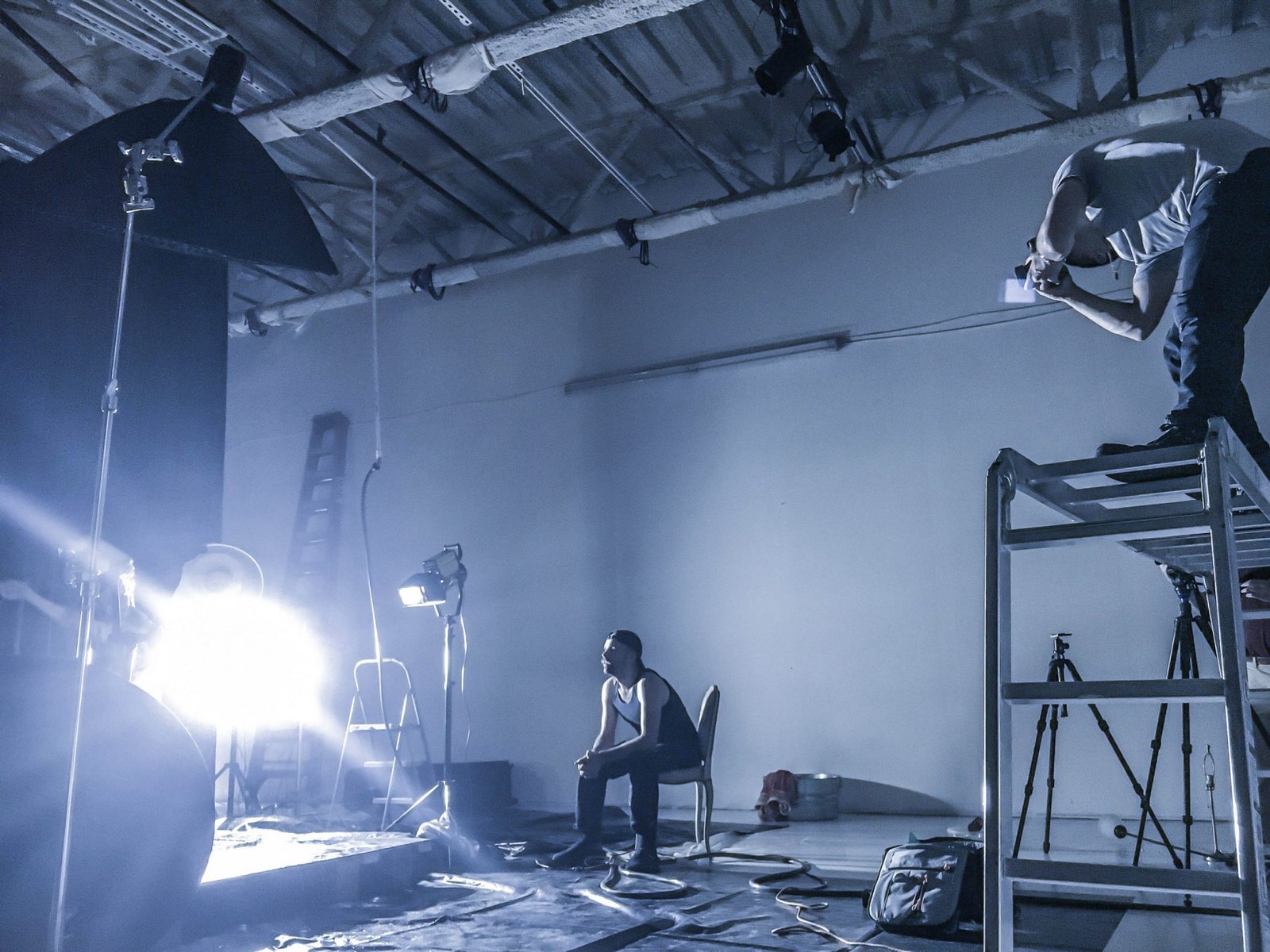
The Fox Magazine is all about inspiration, what/who inspires you the most?
From an artistic standpoint, I’ve always loved RJ Muna’s photography and Damien Krisl’s short films. RJ Muna was an old school legend from San Francisco when I was starting out and had the perfect balance between commercial style and fine art. You just don’t see lighting like that nowadays. It’s a lost art amongst the younger generation. Damien Krisl’s short films almost give you sensory overload, they’re sensual and visually mindblowing. He was definitely ahead of his time, and I’d prefer watching his videos, over the trendy video styles that I see all over Instagram and youtube. Damien’s work inspired me to focus on details and how those details interact with the big picture.
From a business standpoint, I am really inspired by Manoj Bhargava, the founder of 5-hour energy. His documentary, “Billions in Change”, helped shape my life, as well as reaffirmed my love for technology x storytelling. There is something about philanthropists who believe in using tech for helping others in need of solutions, as opposed to just capitalizing on virtual entertainment. I’m also a huge fan of Dean Kamen. American inventor, engineer, etc. He has my dream workshop, haha!
What does success mean to you? What are your rules for success?
I would say that success is when you have the freedom to make the decisions that you previously weren’t afforded.
My rules for success:
- Build a network of like-minded people or mentors that you can exchange advice with, or connect with when times get tough.
- Spend several years working on yourself before you pick a niche. If you choose a niche too early, without experimenting a bit first, you might pigeon hole yourself before you know what you’re really special at.
- Whenever you have the financial capabilities to do so, trust others and outsource work that is too time-consuming for you to do alone. The fact is, there isn’t enough time in this life to become an expert in everything, and you’re stronger when you have a support system. Even if it’s just a partner in crime, that’s better than trying to single-handedly shake the earth.
How do you handle comparisons between your innovation and that of other companies? What is one way you continue to distinguish your brand and stand apart?
The thing I like about my work, is that there aren’t many people doing it. I think a big part of that is because I have a background in manufacturing and photography/video, and that’s a rare combination. I have my own workshop where I’m always building things, so I think my ability to exchange lingo while understanding their engineering concepts is a big plus. Of course, my direction with my business is still in development so I’m always looking to add new things to the body of work.
I feel that creative individuals would much rather shoot things that are more self-expressive if you will. I’m not concerned with self-expression, but I am concerned that the industries that I work with don’t get as much attention because they are (stereotypically) very boring to the public. That bothers me.
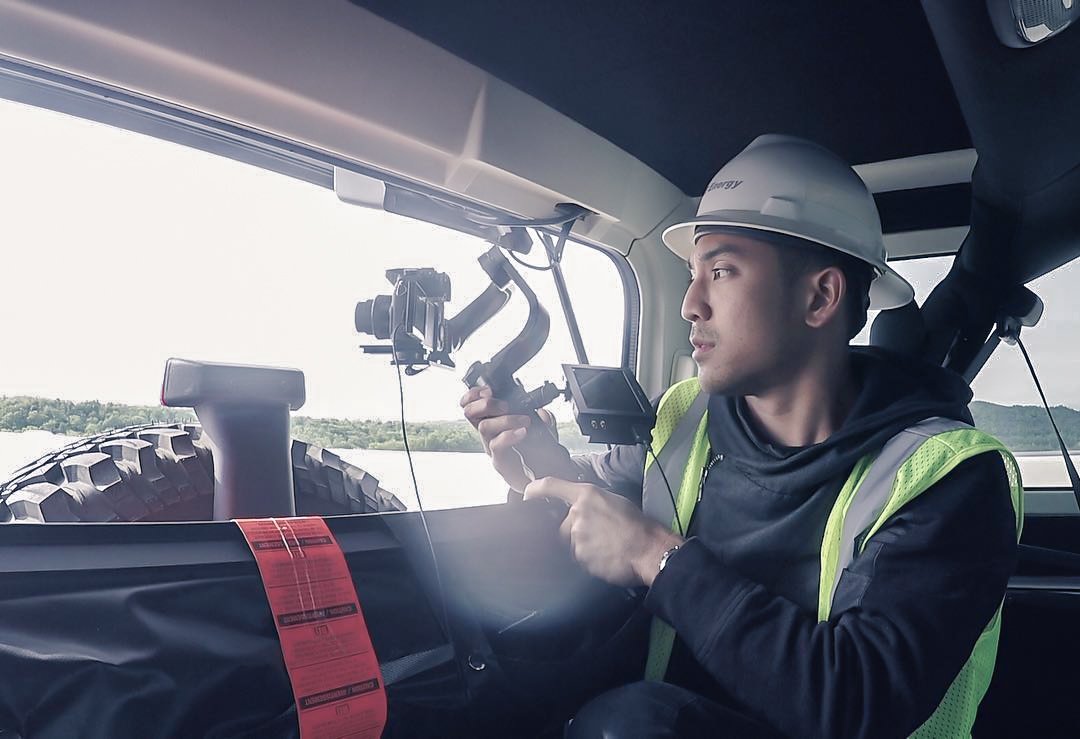
What trends are you most excited about for 2020?
Excited to see what new product innovations come to market! I’m always on Kickstarter checking out what others are launching, so I’m sure I’ll find some stuff to geek out about on there :).
What’s something people would be surprised to learn about you?
Two things I guess:
- Even though I’m really into technology, I would choose to live in more simple times, when none of this existed; where face-to-face communication was still appreciated, and where romance was still romantic. I’m more of an old soul since I grew up in a really old-school family with a lot of music. I love jazz, soul, classical, and any music from the 1920s-1980s.
- After my accident, the doctors said I’d never be able to do acrobatics again, but I was back to it 4 months later! 8 years later to this day, I still practice on a weekly basis. I do take it easy of course though.
What is your favorite innovation-related motto, quote or words to live by?
“I have no special talents. I am only passionately curious.” —Albert Einstein
Connect With Daniel!

